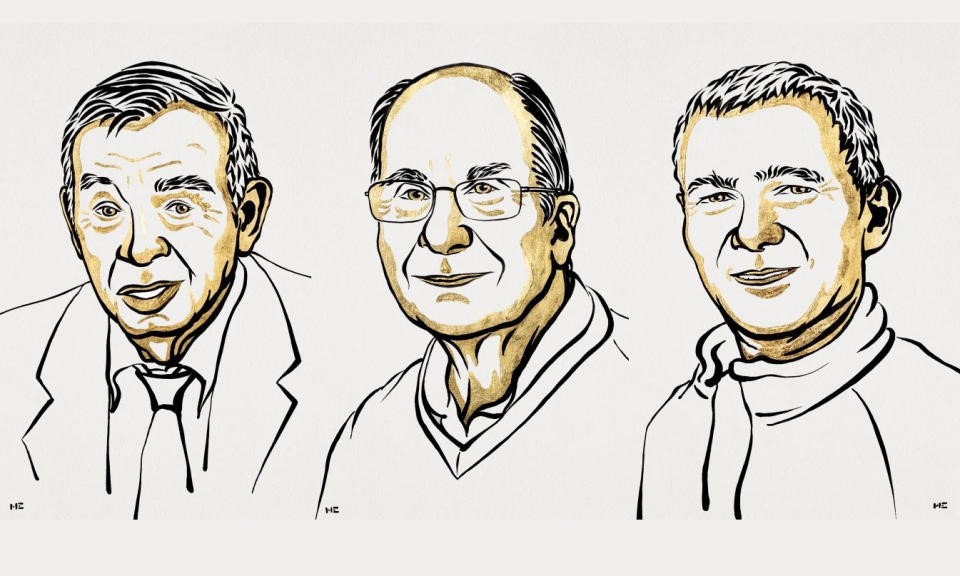Nobel Prize in Chemistry awarded to trio of quantum dot researchers
Nobel Prize in Chemistry awarded to trio of quantum dot researchers
Moungi G. Bawendi, Louis E. Brus and Alexei I. Ekimov share the honors.

The Royal Swedish Academy of Sciences (KVA) has chosen its 2023 Nobel Prize in Chemistry winners, and they’re all about quantum dots. The three researchers — Alexei I. Ekimov, Louis E. Brus and Moungi G. Bawendi — will share the honors for their contributions to nanotechnology.
Although quantum dots had been proposed theoretically earlier in the 20th century, this year’s trio of Nobel winners began verifying them experimentally. The nanoscale semiconductor particles exhibit quantum mechanical properties, glowing in different colors when exposed to light. “Quantum dots have many fascinating and unusual properties. Importantly, they have different colours depending on their size,” wrote Johan Åqvist, Chair of the Nobel Committee for Chemistry, in a press release. The smaller the dot, the bluer its light is; the bigger the dot, the redder its light is. By changing their size, researchers can tune their colors, leading to various scientific advances.
The Nobel recipients’ work with quantum dots has led to progress in display technology (like QLED TVs and monitors), medical and biological imaging, solar cells, drug delivery and quantum computing (among other things). Researchers’ consensus is that we’re still only scratching the surface of quantum dots’ practical capabilities.
Ekimov, a solid-state physicist, was the first to experimentally discover quantum dots when he synthesized them in colored glass in 1981. Meanwhile, Brus proved their size-dependent effects in particles floating freely in a fluid. In the following decade, Bawendi spearheaded breakthroughs in the nanoparticles’ chemical production, leading to “almost perfect particles,” as the KVA’s press release described.
The three honorees will split (evenly) a prize of 11 million Swedish krona (US$998,515).
(11)


